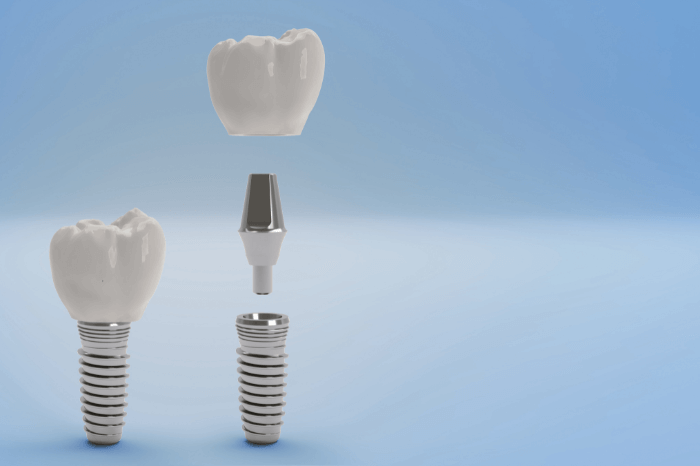
How Durable Are Dental Implants?
Dental implants are a popular solution for tooth loss. They provide a secure, natural-looking replacement that can last a lifetime if properly cared for. We’d like to take you through the process at Harwood Dental Care, Bolton.
The journey to getting dental implants starts with a consultation. At Harwood Dental Care, Bolton, a professional dental team will assess your oral health, discuss your needs and preferences, and explain the available treatment options. This step is crucial as it lays the foundation for the rest of the process.
Next, comes the implant surgery. This is a straightforward procedure, typically performed under local anaesthesia. The dental surgeon places a titanium screw into your jawbone, which acts as a new root for the replacement tooth. Despite the invasive nature of the procedure, most patients report little to no discomfort during this stage.
After the implant is placed, a healing period follows. This can last anywhere from a few weeks to several months, depending on individual healing capabilities and the specifics of the procedure. During this time, the implant fuses with the bone in a process known as osseointegration.
The final step is the placement of the crown, which is the visible part of the tooth. Once your dentist confirms that the implant has fully integrated with your jawbone, they will attach a custom-made crown that matches the colour and shape of your natural teeth. The end result is a strong, sturdy tooth that looks and feels just like your own.
What Makes Dental Implants Durable?
Dental implants are renowned for their durability. But what is it that makes them so sturdy and long-lasting?
Titanium, the primary material used, is a strong, lightweight metal that is biocompatible, meaning it is not harmful or toxic to living tissue. This makes it perfect for use in the human body.
Secondly, their design contributes to their durability. The thread-like design of the implant screw increases the surface area for bone contact, promoting better osseointegration and stability.
Lastly, the process of osseointegration itself is key to the durability of dental implants. This natural process, where the bone grows around the implant to secure it in place, creates a strong and stable foundation for the replacement tooth.
Factors Affecting their Durability
While they are known for their durability, their longevity can be influenced by several factors.
One of the primary factors is oral hygiene. Just like natural teeth, they require regular cleaning to prevent the build-up of plaque and bacteria. Poor oral hygiene can lead to gum disease, which can compromise their stability.
Lifestyle habits such as smoking and excessive alcohol consumption can also impact the durability of dental implants. These habits can hinder the healing process post-implant surgery and reduce the long-term success rate of the implants.
How to Maintain the Durability of Dental Implants
Maintaining their durability primarily involves good oral hygiene and regular dental check-ups.
Daily brushing and flossing are essential to keep your dental implants clean and free from plaque. Using a toothbrush with soft bristles and non-abrasive toothpaste can help prevent damage to the implant surface. Additionally, an antimicrobial mouth rinse can help keep bacteria at bay.
Regular dental check-ups are also crucial. Your dentist can monitor their condition and ensure they are functioning properly. They can spot and address any potential issues early, helping to prolong the life of your implants.
FAQ: Understanding the Durability of Dental Implants
Q: How long do dental implants last? A: They can last a lifetime with proper care and maintenance. However, the crown may need to be replaced every 10-15 years due to normal wear and tear.
Q: Can they fail? A: Yes, dental implants can fail, although the failure rate is relatively low. Factors such as poor oral hygiene, smoking, and certain medical conditions can increase the risk of implant failure.
Q: Can dental implants be removed? A: Yes, dental implants can be removed if necessary. However, removal is usually the last resort, as it can be a complex procedure and can damage the surrounding bone and tissues.
The team at Harwood Dental Care, Bolton, is dedicated to providing high-quality dental implants and comprehensive aftercare to ensure your implants last as long as possible.







